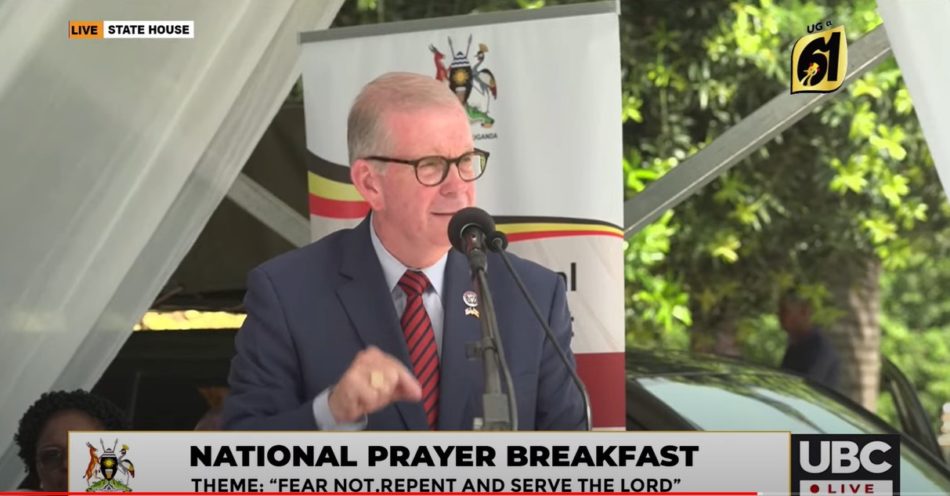
Congressman Tim Walberg is pushing back on media reports that he encouraged officials in Uganda to resist pressure to repeal what have been termed “anti-gay” laws.
Walberg spoke last October at the National Prayer Breakfast in Uganda, several times encouraging attendees and the government to stand firm in their Christian beliefs and against pressure from the World Bank, the World Health Organization, the United Nations, and some in the United States.
In that speech, Walberg did not speak about specific pressures from those organizations or about any specific laws or policies, but he did reference abortion and gender identity.
Recent media reports have interpreted Walberg’s remarks to mean the congressman supports the Anti-Homosexuality Act that Uganda enacted last year — an act that has drawn criticism or concern from a number of global organizations and the United States government. In an interview this morning on the WSJM Morning Show, Walberg said those media reports contain misinformation.
“It’s a lie. That’s my basic answer.”
Walberg said in the past, he’s discouraged Uganda’s government from criminalizing same-sex conduct or homosexual activity under penalty of law. He said this speech was about standing by your core principles.
“I spoke to the fact that they need to stand according to God’s word. If God’s word says it, then stick to it. Others around the world, including the United Nations, the World Health Organization, maybe even the United States and this administration, will oppose you for various reasons. But if God says it, then stand with it. I did not speak to any law.”
Walberg went on to say the media reports are part of a campaign from The Young Turks, a self-described progressive online network that Walberg said has opposed to the bipartisan National Prayer Breakfast for years.
Walberg said his concern is not about any specific law, but rather the unequal application of punishments from global organizations like the World Bank, who have repeatedly stripped Ugandans of economic opportunity, while letting other countries like Afghanistan go unscathed despite their social policies.








